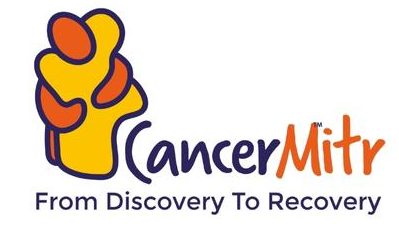7 Water-Rich Foods Vital for Dehydrated Cancer Patients Battling Treatment Side Effects
Water stands as a fundamental necessity for the human body, orchestrating a symphony of vital functions crucial for our survival. Its multifaceted role includes the regulation of body temperature, tissue moisturization, joint lubrication, toxin elimination, and the transportation of nutrients and oxygen within the bloodstream. Dehydration, a condition arising from insufficient fluid levels, jeopardizes the execution of these indispensable functions and can manifest through factors such as excessive sweating, vomiting, diarrhoea, and dry mouth.
The challenge of maintaining hydration becomes particularly pronounced during cancer treatment, where the body not only grapples with fluid loss but also requires a steady influx of nutrients for energy production and healing. In this intricate balance, certain fruits emerge as invaluable allies, offering a dual benefit by supplying both essential water content and vital nutrients to support the body’s resilience during such demanding therapeutic interventions.
<span data-metadata=""><span data-buffer="">What are the hydrating food items that help cancer patients?
Water, constituting 60% of the human body, is a linchpin in sustaining optimal health. The individualized water requirements hinge on factors like height, weight, age, physical activity, and gender. For instance, an adult male necessitates 15.5 cups (3.7 litres) of fluids daily, while an adult female requires 11.5 cups (2.7 litres). This essential fluid intake becomes even more critical for cancer patients, demanding a minimum of eight glasses daily. Adequate hydration serves as a powerful ally in managing prevalent symptoms such as dry mouth, fatigue, dizziness, and pain during cancer treatment. Beyond traditional water consumption, integrating water-rich and nutrient-packed foods into one’s diet becomes pivotal. Fruits and vegetables, endowed with antioxidants and anti-inflammatory properties, not only contribute to hydration but also combat free radicals, safeguarding cellular and DNA structures from potential damage. In the journey towards holistic health for cancer patients, the incorporation of these select food items becomes a strategic and supportive measure, addressing multiple facets of their well-being simultaneously.
1, Cucumber
Cucumber, comprising an impressive 96% water content and distinctive bitter-tasting compounds known as cucurbitacins, emerges as a potent ally in the battle against cancer. Moreover, this versatile vegetable contributes to seamless food digestion, boasting trace metal components, essential vitamins, minerals, and carbohydrates. Integrating cucumber into daily meals, whether in salads, smoothies, or sandwiches, offers a delicious and nutritious means of fortifying one’s health. Supported by a study published in the esteemed journal Science, incorporating cucumber into one’s diet on a regular basis stands as a proactive strategy in the prevention and management of cancer and diabetes.
2, Watermelon
Within the succulent depths of watermelon lies a reservoir of hydration and health-promoting elements that elevate it beyond mere refreshment. Abundant in water and armed with antioxidants, this vibrant fruit emerges as a formidable contender in the arena against diabetes, cardiovascular diseases, and cancer. The pink hue of watermelon, attributed to the presence of lycopene, heralds not only its visual appeal but also its potent anti-cancer properties. Lycopene, acting as a guardian in skin cells, offers protection against damage induced by solar radiation, emphasizing the fruit’s role as a natural shield against environmental stressors. Delving further into its nutritional profile, watermelon proves to be a rich source of vitamins A and C, both pivotal players in fortifying the body’s immune system. The marriage of hydration, antioxidants, and essential vitamins positions watermelon as a delectable ally in the pursuit of holistic well-being, weaving together taste and health benefits in a single, refreshing bite.
3, Tomato
Tomato is a favourite food item amongst people as it provides the dish with a sweet-tangy taste. Tomato has a 94% water content and can help in the rehydration process. In addition to that, they also have vitamin C, potassium, and antioxidants like lycopene, which help fight cancer cells and prevent cardiovascular diseases. The peculiarity of this fruit is that it’s nutritional value increases with cooking. For example, stewed tomatoes have lutein and zeaxanthin when compared to sun-dried tomatoes. It helps reduce the risk of oral cavity, pharynx, esophagus, nasopharynx, larynx, lung, colorectal, and stomach cancers.
4, Spinach
Spinach has 92% water content and helps maintain bone, hair, and skin strength. According to a study by researchers from Texas A&M University (TAMU) in College Station, consuming spinach helps inhibit the growth of colon polyps, which is a precancerous condition. It contains fibre and is regarded as a superior supplier of nutrients like vitamin K, vitamin A, vitamin C, vitamin B2, manganese, magnesium, folic acid, iron, and potassium.
5, Mushrooms
Mushrooms contain 92% water content and anti-oxidants. They contain all the essential amino acids, minerals, and vitamins. They have cancer-fighting properties as well.
6, Apples
With 84% water content, apples are an excellent option for cancer patients who are struggling with fluid loss and dehydration. Apples have cancer-fighting polyphenols, a plant-based compound. Polyphenols also help in preventing inflammation, cardiovascular disease, and infections. Cancer patients often find it difficult to consume fruits that are acidic in nature. Fruits like apples, avocadoes and bananas have high alkaline pH values.
7, Asparagus
Asparagus has 92% water content and is an excellent source of fibre, vitamin A, vitamin K, and zinc. It has compounds that help in the easy digestion of food, maintenance of blood sugar and fat absorption.
Asparagus contains glutathione, which is also produced in the cells of the human body. It helps reduce the risk of mouth cancer. It also has another agent called asparagine, which is a non-essential amino acid that controls the brain and nerve tissue cell division. It is also rich in folate, iron, fibre, potassium, zinc, and vitamins E, C, A, and K.
<span data-buffer="">What are the symptoms of dehydration?
One of the most reliable ways to check if a person is hydrated or dehydrated is by checking the colour of the urine. If the urine colour is dark yellow, the person is severely dehydrated. Other symptoms of dehydration include;
- Elevated heart rate
- Dizziness
- Dry mouth
- Headache
- Body pain
- Confusion or irritability
People who experience these symptoms should consume at least a glass of water. Those who suffer from nausea and vomiting can try taking a few sips of water every minute or every two minutes until they feel satisfied. Above mentioned fruits will also help in coping with the fatigue and dehydration that comes with cancer disease and it’s treatment.
<span data-buffer="">In conclusion,
Certain foods exacerbate dehydration and worsen cancer symptoms, such as caffeine and high-salt options. Alcohol, a diuretic, poses additional risks. A balanced diet and ample hydration play pivotal roles in overcoming health conditions, emphasizing the profound impact of nutrition on overall well-being.
<span data-buffer=""> Are you suffering from cancer treatment side effects? Looking for the perfect integrative therapy plan? <span data-metadata="">
CancerMitr offers a holistic plan for all cancer patients to ease their journey into recovery. After understanding your situation and needs to assist you, our team puts together a perfect plan. We offer various integrative support therapies, including the above-mentioned therapies and more. We are here to put a smile on cancer patients and their families. Check out our website for various packages.

